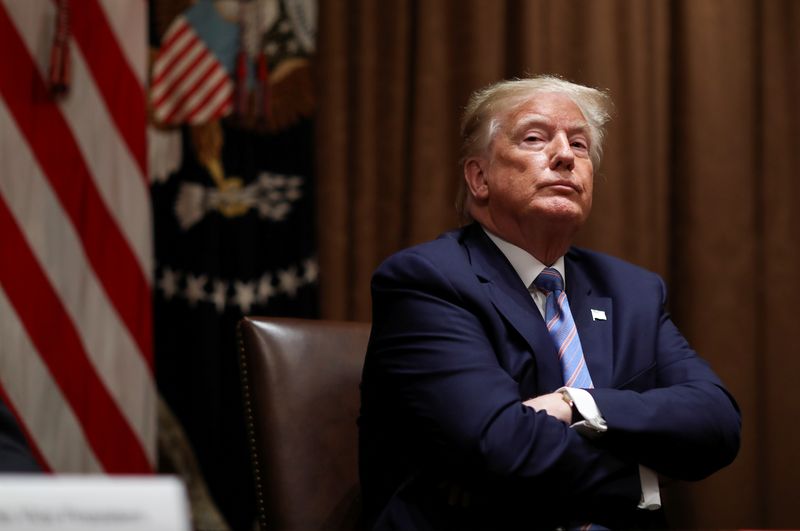By Jeff Mason and David Shepardson
(Reuters) - The Trump administration is preparing an up to $1 trillion infrastructure package focused on transportation projects as part of its push to spur the world's largest economy back to life, a source familiar with the situation said on Tuesday.
The Department of Transportation's preliminary version reserves most funds for projects such as roads and bridges, but will also set aside about a quarter of the money for priorities such as 5G wireless infrastructure and rural broadband, two sources said.
The White House, which has made similar proposals in recent years, is aiming to unveil its latest effort in July, one of the sources said. News of the potential additional stimulus, first reported by Bloomberg, supported a U.S. stock market rise on Tuesday.
President Donald Trump, a Republican, is running for re-election in November. He is eager to boost the economy to bolster his political prospects after criticism of his handling of the coronavirus pandemic and the response to protests after the death of a black man in police custody in Minneapolis sparked protests worldwide.
As the economy slowly recovers from the roughly two-month shutdown to limit the spread of COVID-19, the Trump administration is looking at measures to jump-start employment.
The administration proposal would extend the law authorizing highway and other surface transportation funding. The current law, known as the FAST Act, authorized $305 billion over five years and is set to expire on Sept. 30.
The White House is likely to propose a 10-year reauthorization of the measure, which would be the longest-ever surface transportation bill and is set to release its proposal as early as next week, two other people briefed on the matter said.
The White House is not expected to disclose how it intends to pay for the new jump in infrastructure spending. It has repeatedly called for at least $1 trillion in total infrastructure spending over 10 years in line with Trump’s 2016 campaign promise.
Republicans have been voicing concerns about deficit spending after years of downplaying it. Senate Majority Leader Mitch McConnell has expressed reservations about a big infrastructure spending bill, and new concerns about debt, especially with the huge cost of the pandemic response, could be a hurdle.
Democrats on Wednesday in the House of Representatives Transportation and Infrastructure Committee will debate a $494 billion five-year surface transportation bill that would provide $319 billion to fix 47,000 structurally deficient bridges and make other repairs, $105 billion for mass transit and invest nearly $30 billion in passenger railroad Amtrak and rail infrastructure.
The full House is expected to vote on the measure in early July.
In April 2019, Trump and Democratic leaders agreed to spend $2 trillion on infrastructure, without hashing out a way to pay for it. Weeks later, Trump abruptly canceled a follow-up meeting after criticizing congressional investigations.

Congress abandoned the practice of largely requiring road users to pay for road repairs and has not raised the federal gas tax since 1993. Since 2008, Congress has transferred about $141 billion in general revenues to the Highway Trust Fund.